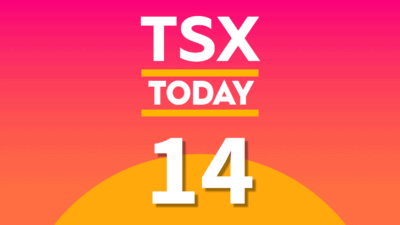If you are a dividend investor searching for fresh ideas, you should consider looking into the S&P/TSX Composite Low Volatility Index. The index is updated every quarter and is composed of the 50 least-volatile stocks in the broader S&P/TSX Composite Index. In the financial world, volatility is a measure of risk. Stocks with low volatility have traditionally outperformed high-volatility stocks over the long term. Stocks with large dividend payouts that are accompanied by high volatility are quite often not the bargains they appear to be.
One way to understand volatility is to think of it as a measure of smoothness. Think of gently rolling hills as opposed to jagged mountain peaks and deep crevasses. You can make a lot of money trading the big moves that volatile stocks provide, but they can also ruin your day with alarming speed and alacrity. If you are not a stock market thrill seeker, then perhaps you should leave the bucking broncos of the TSX to the day traders. Low-volatility stocks are smooth movers that will fit nicely into your portfolio.
Low volatility doesn’t mean low returns
A look at the fact sheet for the Low Volatility Index shows that it has consistently outperformed the TSX in total growth. In the past 10 years, the index lost ground only one time in 2008. Over that same period, the TSX finished negative three times in 2008, 2011, and 2015. As of October 31, the average dividend yield for the low volatility index was 4.74% compared to 3.34% for the TSX.
Not every stock in the current group is headed in the right direction, but most are. Two telecom stocks in the index that recently caught my eyes are BCE (TSX:BCE)(NYSE:BCE) and Telus Corporation (TSX:T)(NYSE:TU). Both are large wireless and internet providers in Canada and are currently gaining momentum.
In spite of the generous dividend yield of 5.58% that BCE provides, its stock price has drifted lower for most of 2018. However, the release of its third-quarter results sparked a buying frenzy. On November 1, the day the report was released, BCE posted a 3.4% gain, the most substantial single-day move of the year. Since then the stock has risen sharply, and at the time of writing, BCE is trading at $56.95, almost 12% higher than its October low.
Telus has moved up nearly 8% from its October low and is trading at $47.69 at the time of writing. It also was inspired by the release of its third-quarter results on November 6 and has been climbing steadily since. Telus has a current dividend yield of 4.67%
Final thoughts
Both of these companies have been strong performers over the years. The combination of low volatility, strong momentum, and generous dividend yields make BCE Inc. and Telus Corporation excellent choices for dividend bargain hunters.
 Stock Up Sale
Stock Up Sale







